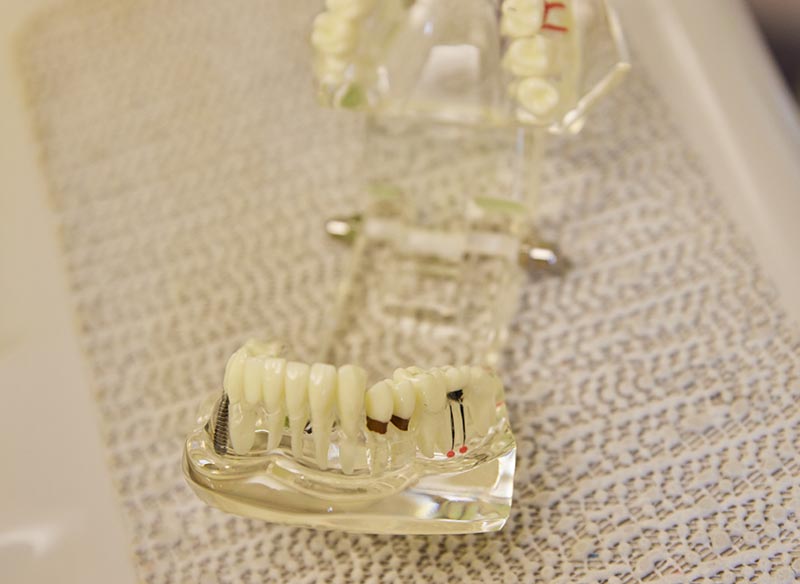Download The Ultimate Guide to Sustainable Dentistry eBook
I’d like to share some valuable information about considering a metal-free biocompatible dental implant as your #1 choice for missing teeth.
When a tooth — or teeth — are lost, it is crucial to get a structural replacement that will keep the rest of your teeth aligned. Proper tooth alignment is critical not only to avoid problems with eating and speaking but also to keep the natural shape of your face intact.
Why Should I Choose Dental Implants?
Typical options for filling gaps caused by missing teeth are dental bridges, dentures for full arch restorations, and dental implants. Dental bridges are false teeth that are anchored to the healthy teeth around your missing tooth. However, placement requires that the healthy teeth be manipulated to hold the bridge apparatus. This can increase the risk of damage and cavities in the healthy teeth down the line. Also, bridges are not permanent — they must be replaced every seven to ten years, and they don’t help stave off bone loss in your jaw that typically results when teeth are extracted. If you require a full arch restoration, you may consider dentures. Dentures come with a host of negatives, including difficulties eating, drinking, and speaking, as well as the need for nightly removal and bone loss over time. Dental implants for one or more teeth or implant-supported dentures for a full arch restoration are great ways to restore your smile to its natural, healthy state without the drawbacks of dental bridges and other restoration methods.

What is a Dental Implant?
Dental implants are small posts, typically made of titanium that your dentist inserts into your jawbone during a short, in-office surgical process. Once the implant integrates with your bone, the dentist attaches a connector, called an abutment, to the top of the implant. Your artificial tooth — or teeth — will then attach to this abutment. In this way, you can replace a single tooth with a crown or multiple teeth with a fixed bridge or full or partial dentures. Importantly, your dental implants can last a lifetime, and because they are set into your jawbone just like the natural roots of your teeth, they can help prevent bone loss in areas where you are missing teeth. However, there can be issues that arise from the use of titanium in the implant.
What are the Drawbacks of Titanium Implants?
Titanium implants can, over time, release titanium ions into the soft tissues surrounding the implant, which can cause inflammation. Also, exposing titanium to surface bacteria that commonly occur in your mouth can reduce its ability to resist corrosion. Furthermore, as your gums recede over time, you can get the appearance of a dark shadow at the gumline, which is the titanium abutment showing through. While not inherently dangerous, this shadow can seriously impact the aesthetics of your smile. Peri-implantitis, or the accumulation of plaque around the gumline, coupled with metal corrosion, can lead to the loss of your implant over time — and even more serious consequences.

Using Metal-Free Implants for Best Results
At Dentistry for Health, we provide the finest, biocompatible materials for safer, longer-lasting, more natural-looking, and beautiful dental implants. Our revolutionary ZERAMEX® are all-ceramic implants that will not corrode, deteriorate, or conduct heat or electricity. Using innovative carbon-ceramic technology, we are able to provide natural-colored dental implant structures for our patients that not only enhance the natural look of the final restoration but also provide positive long-term results.
ZERAMEX® implants also reduce the factors that can lead to peri-implantitis. Ceramics have a low plaque affinity, which means plaque does not tend to stick to their surfaces. Plus, ceramics do not release ions into the gum tissue, nor are they at risk of corrosion. Together, these features help keep your gums — and your implant — healthier for better long-term results.
 Request Appointment
Request Appointment